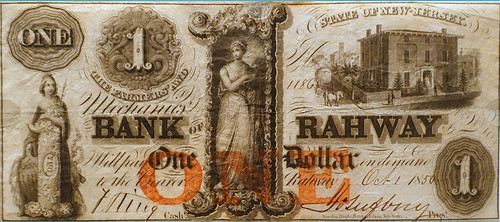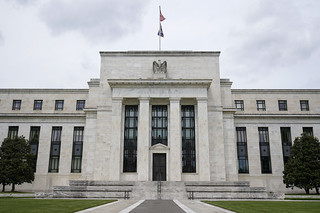
PREV ARTICLE
FULL ISSUE
PREV FULL ISSUE
LOOSE CHANGE: JUNE 13, 2021Here are some additional items in the media this week that may be of interest. -Editor This article is an overview of obsolete banknotes. Found via News & Notes from the Society of Paper Money Collectors (Volume VI, Number 51 June 8, 2021). -Editor
The rise and fall in the price of Bitcoin based on Elon Musk’s tweets is a reminder that most people view the private digital currency more as an investment than usable money. But there was a time in the United States when private money was a very viable option. Before the Civil War and the printing of the first greenbacks, historian Stephen Mihm writes, hundreds of local banks issued Before the American Revolution, economic historian Howard Bodenhorn explains, Britain didn’t send enough small-denomination copper and silver coins to the colonies to meet local needs. So colonial loan offices and land banks issued bills of credit for under 20 shillings. Minting of coins remained limited well into the nineteenth century, and local commercial banks picked up the slack. They took in gold and gave out bank notes in return, including some in very small denominations. Bodenhorn writes that people used this paper currency in everyday transactions. But it couldn’t circulate too far from the issuing bank, where the notes could be redeemed. Merchants located at a distance often only accepted them at a discount or wouldn’t take them at all. To make the notes more useful, some country banks made deals to get their counterparts in nearby cities to redeem them. Buyers and sellers had to be careful about the bills they used, Bodenhorn writes. If a bank went belly-up, its currency would become unredeemable and worthless. So merchants and consumers often used brokers, who monitored the quality of banknotes.
To read the complete article, see:
The Federal Reserve is continuing to review options for issuing a crypto currency. -Editor
The idea of creating a fully digital version of the U.S. dollar, which was unthinkable just a few years ago, has gained bipartisan interest from lawmakers as diverse as Sens. Elizabeth Warren (D-Mass.) and John Kennedy (R-La.) because of its potential benefits for consumers who don’t have bank accounts. But it’s also sparking strong pushback from those with the most to lose: banks. The explosive rise of private cryptocurrencies in recent years motivated the Fed to start considering a digital dollar to be used alongside the traditional paper currency. The biggest driver of concern was a Facebook-led effort, launched in 2019, to build a global payments network using crypto technology. Though that effort is now much narrower, it demonstrated how the private sector could, in theory, create a massive currency system outside government control. Now, central banks around the world have begun exploring the idea of issuing their own digital currencies — a fiat version of a cryptocurrency that would operate more like physical cash — that would have some of the same technological benefits as other cryptocurrencies.
To read the complete article, see:
Wayne Homren, Editor The Numismatic Bibliomania Society is a non-profit organization promoting numismatic literature. See our web site at coinbooks.org. To submit items for publication in The E-Sylum, write to the Editor at this address: whomren@gmail.com To subscribe go to: https://my.binhost.com/lists/listinfo/esylum All Rights Reserved. NBS Home Page Contact the NBS webmaster 
|


